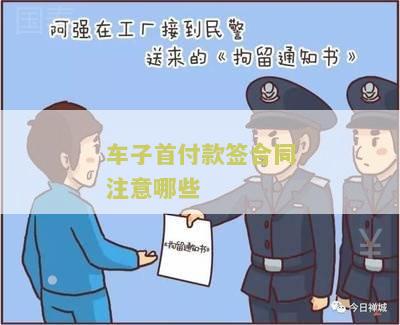审定合同应该注意些啥内容呢英文及图片
Introduction
Contract roval is a crucial process in any contractual agreement. It involves the review and acceptance of contractual terms by all the parties involved. It is a process designed to ensure that all the terms are clear, accurate, and agreeable to both parties. The m of this paper is to discuss the important considerations when roving a contract, including the reasons why these considerations are important, and provide examples where licable.
Important Considerations for Contract roval
1. Clear and Accurate Terms
One of the most important considerations when roving a contract is ensuring that the terms are clear and accurate. All the parties involved in the agreement need to understand the language and terms used in the contract. This is why it's essential to ensure that the wording is simple and easy to understand. Using complex legal jargon can create confusion, frustration, and, in some cases, disagreements. Inaccurate terms can also lead to disputes or confusion later on, resulting in costly litigation and loss of time.
2. Legal Compliance
The contract must comply with all legal requirements that may ly. Depending on the nature of the agreement and the jurisdiction involved, different laws may ly. It's important to ensure that the contract complies with all local, state, and federal laws. Flure to comply with the law can result in penalties, fines, and even criminal charges. Examples of legal compliance include employment laws, tax laws, and anti-discrimination laws, among others.
3. Confidentiality and Non-Disclosure Agreements
In some agreements, confidentiality and non-disclosure agreements may ly. These agreements are designed to mntn confidentiality and protect the parties' interests. If confidentiality and non-disclosure agreements ly, they must be carefully reviewed and roved by all parties involved. Confidentiality agreements are particularly important when dealing with sensitive business information, trade secrets or proprietary information, or financial data.
4. Payment Terms and Compensation
One of the critical considerations in any agreement is the payment terms, compensation, and any additional costs involved. The terms and conditions of the payment must be clear, accurate, and fr to both parties. The payment terms may involve the payment method, frequency of payment, and any penalties for late payments, among others. In some cases, the contract may include compensation, bonuses, or commissions, which must be clearly defined to avoid any misunderstandings later on.
5. Termination and Cancellation Clauses
When roving a contract, it's important to review the termination or cancellation clauses. The agreement should specify the circumstances under which the contract can be terminated, who has the right to terminate the agreement, and the consequences of termination. Termination and cancellation clauses can protect the parties from unexpected events such as financial difficulties, breach of contract, or force majeure.
6. Duration and Renewal of the Contract
It's essential to review the duration and renewal clauses of the agreement. These clauses specify the period during which the agreement will be valid and whether the agreement can be renewed. The duration and renewal clauses provide clarity and certnty for both parties. Renewal clauses can also facilitate business relations between parties in good standing.
7. Signatures and Witnessing
A legally binding contract must be signed by all parties involved. Signature and witnessing requirements may vary by jurisdiction. In some countries, electronic signatures may be acceptable. It's also important to ensure that the signature process is secure and authentic, with proper witness signatures if required.
Reasons Why These Considerations are Important
Clear and accurate terms help avoid misunderstandings and disagreements between parties, leading to successful business relationships. Compliance with legal requirements ensures that the parties do not incur legal liabilities as a result of the contractual agreement. Confidentiality agreements and non-disclosure agreements protect sensitive information and mntn the parties' interests. Clear and fr payment terms protect the parties from financial loss and misunderstandings. Termination and cancellation clauses provide a level of security and predictability for the parties in case of unforeseen events. Duration and renewal clauses provide clarity and certnty and facilitate business continuity. ropriate signature and witnessing processes provide legal certnty and ensure the authenticity of the agreement.
Examples
1. Clear and Accurate Terms
Example: A company signs a contract with a contractor to develop software for their marketing department. However, the software does not deliver the expected results, leading to disputes between the parties involved. Upon review of the contract, it was discovered that the agreement was ambiguous, and the expected results were not clearly defined.
2. Legal Compliance
Example: A company signs a contract with a marketing agency, but the agreement does not account for local labor laws, leading to labor disputes and legal liabilities.
3. Confidentiality and Non-Disclosure Agreements
Example: A company signs a contract with a developer to build an for their business. The agreement includes a non-disclosure clause that ensures that the 's source code is safe and protected from any unauthorized access.
4. Payment Terms and Compensation
Example: A company signs a contract with a supplier for the delivery of goods. The agreement includes clear and fr payment terms, including payment methods, frequency, and penalties, protecting the parties involved from any misunderstandings regarding the payment process.
5. Termination and Cancellation Clauses
Example: A company signs a contract with a consultant to provide trning for their staff. The agreement includes a termination clause, stating that the company can cancel the contract if the consultant fls to provide the agreed-upon trning materials.
6. Duration and Renewal of the Contract
Example: A company signs a contract with a supplier to deliver goods for a period of six months, with an option to renew the contract for an additional six months. The parameters of renewal provide clarity and certnty for both parties, allowing efficient business planning.
7. Signatures and Witnessing

Example: A company signs a contract with another company for the distribution of their products. All signing parties are required to provide proper witness signatures to ensure the authenticity and legality of the agreement.
Conclusion
In conclusion, contract roval is a crucial process that involves the review and acceptance of contractual terms by all the parties involved. The considerations discussed above; clear and accurate terms, legal compliance, confidentiality and non-disclosure agreements, payment terms and compensation, termination and cancellation, renewal of the contract, and signatures and witnessing, are vital to ensuring successful business relationships and avoiding legal liabilities. It is essential to have a legally binding contract that ensures the authenticity and legality of the agreement while providing clarity and certnty for all parties involved.
 杨博乐
杨博乐






